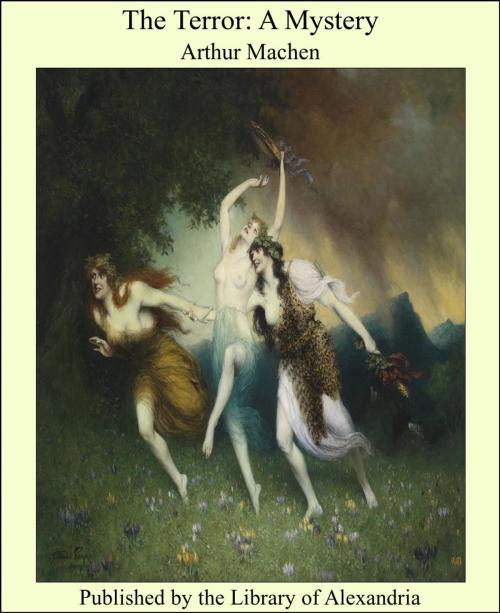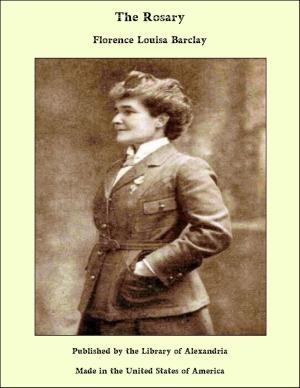| Author: | Arthur Machen | ISBN: | 9781465539908 |
| Publisher: | Library of Alexandria | Publication: | March 8, 2015 |
| Imprint: | Language: | English |
| Author: | Arthur Machen |
| ISBN: | 9781465539908 |
| Publisher: | Library of Alexandria |
| Publication: | March 8, 2015 |
| Imprint: | |
| Language: | English |
The Coming of the Terror After two years we are turning once more to the morning's news with a sense of appetite and glad expectation. There were thrills at the beginning of the war; the thrill of horror and of a doom that seemed at once incredible and certain; this was when Namur fell and the German host swelled like a flood over the French fields, and drew very near to the walls of Paris. Then we felt the thrill of exultation when the good news came that the awful tide had been turned back, that Paris and the world were safe; for awhile at all events. Then for days we hoped for more news as good as this or better. Has Von Kluck been surrounded? Not to-day, but perhaps he will be surrounded to-morrow. But the days became weeks, the weeks drew out to months; the battle in the West seemed frozen. Now and again things were done that seemed hopeful, with promise of events still better. But Neuve Chapelle and Loos dwindled into disappointments as their tale was told fully; the lines in the West remained, for all practical purposes of victory, immobile. Nothing seemed to happen; there was nothing to read save the record of operations that were clearly trifling and insignificant. People speculated as to the reason of this inaction; the hopeful said that Joffre had a plan, that he was "nibbling," Others declared that we were short of munitions, Others again that the new levies were not yet ripe for battle. So the months went by, and almost two years of war had been completed before the motionless English line began to stir and quiver as if it awoke from a long sleep, and began to roll onward, overwhelming the enemy. The secret of the long inaction of the British Armies has been well kept. On the one hand it was rigorously protected by the censorship, which severe, and sometimes severe to the point of absurdity—"the captains and the ... depart," for instance—became in this particular matter ferocious. As soon as the real significance of that which was happening, or beginning to happen, was perceived by the authorities, an underlined circular was issued to the newspaper proprietors of Great Britain and Ireland. It warned each proprietor that he might impart the contents of this circular to one Other person only, such person being the responsible editor of his paper, who was to keep the communication secret under the severest penalties. The circular forbade any mention of certain events that had taken place, that might take place; it forbade any kind of allusion to these events or any hint of their existence, or of the possibility of their existence, not only in the Press, but in any form whatever. The subject was not to be alluded to in conversation, it was not to be hinted at, however obscurely, in letters; the very existence of the circular, its subject apart, was to be a dead secret. These measures were successful. A wealthy newspaper proprietor of the North, warmed a little at the end of the Throwsters' Feast (which was held as usual, it will be remembered), ventured to say to the man next to him: "How awful it would be, wouldn't it, if...." His words were repeated, as proof, one regrets to say, that it was time for "old Arnold" to "pull himself together"; and he was fined a thousand pounds. Then, there was the case of an obscure weekly paper published in the county town of an agricultural district in Wales. The Meiros Observer (we will call it) was issued from a stationer's back premises, and filled its four pages with accounts of local flower shows, fancy fairs at vicarages, reports of parish councils, and rare bathing fatalities. It also issued a visitors' list, which has been known to contain six names
The Coming of the Terror After two years we are turning once more to the morning's news with a sense of appetite and glad expectation. There were thrills at the beginning of the war; the thrill of horror and of a doom that seemed at once incredible and certain; this was when Namur fell and the German host swelled like a flood over the French fields, and drew very near to the walls of Paris. Then we felt the thrill of exultation when the good news came that the awful tide had been turned back, that Paris and the world were safe; for awhile at all events. Then for days we hoped for more news as good as this or better. Has Von Kluck been surrounded? Not to-day, but perhaps he will be surrounded to-morrow. But the days became weeks, the weeks drew out to months; the battle in the West seemed frozen. Now and again things were done that seemed hopeful, with promise of events still better. But Neuve Chapelle and Loos dwindled into disappointments as their tale was told fully; the lines in the West remained, for all practical purposes of victory, immobile. Nothing seemed to happen; there was nothing to read save the record of operations that were clearly trifling and insignificant. People speculated as to the reason of this inaction; the hopeful said that Joffre had a plan, that he was "nibbling," Others declared that we were short of munitions, Others again that the new levies were not yet ripe for battle. So the months went by, and almost two years of war had been completed before the motionless English line began to stir and quiver as if it awoke from a long sleep, and began to roll onward, overwhelming the enemy. The secret of the long inaction of the British Armies has been well kept. On the one hand it was rigorously protected by the censorship, which severe, and sometimes severe to the point of absurdity—"the captains and the ... depart," for instance—became in this particular matter ferocious. As soon as the real significance of that which was happening, or beginning to happen, was perceived by the authorities, an underlined circular was issued to the newspaper proprietors of Great Britain and Ireland. It warned each proprietor that he might impart the contents of this circular to one Other person only, such person being the responsible editor of his paper, who was to keep the communication secret under the severest penalties. The circular forbade any mention of certain events that had taken place, that might take place; it forbade any kind of allusion to these events or any hint of their existence, or of the possibility of their existence, not only in the Press, but in any form whatever. The subject was not to be alluded to in conversation, it was not to be hinted at, however obscurely, in letters; the very existence of the circular, its subject apart, was to be a dead secret. These measures were successful. A wealthy newspaper proprietor of the North, warmed a little at the end of the Throwsters' Feast (which was held as usual, it will be remembered), ventured to say to the man next to him: "How awful it would be, wouldn't it, if...." His words were repeated, as proof, one regrets to say, that it was time for "old Arnold" to "pull himself together"; and he was fined a thousand pounds. Then, there was the case of an obscure weekly paper published in the county town of an agricultural district in Wales. The Meiros Observer (we will call it) was issued from a stationer's back premises, and filled its four pages with accounts of local flower shows, fancy fairs at vicarages, reports of parish councils, and rare bathing fatalities. It also issued a visitors' list, which has been known to contain six names















